Psychology Interview Report: Decision-Making Process Analysis
VerifiedAdded on 2023/06/03
|6
|1081
|408
Report
AI Summary
This report summarizes an interview conducted with Rev. Dr. Victor George, a pastor and counselor, focusing on his decision-making process. The interview reveals that the pastor's approach aligns with the Kübler-Ross grief model, which he applies to decision-making. The report details the pastor's responses to questions about challenging counseling situations, his reliance on biblical beliefs, and the stages he experiences during decision-making: denial, anger, bargaining, depression (though skipped in this case), and acceptance. The interview also discusses the influence of his faith and the personalized nature of decision-making, referencing relevant psychological and biblical sources. The report provides a detailed analysis of the pastor's experiences and insights, offering a unique perspective on the intersection of faith, psychology, and ethical considerations in counseling.
1 out of 6
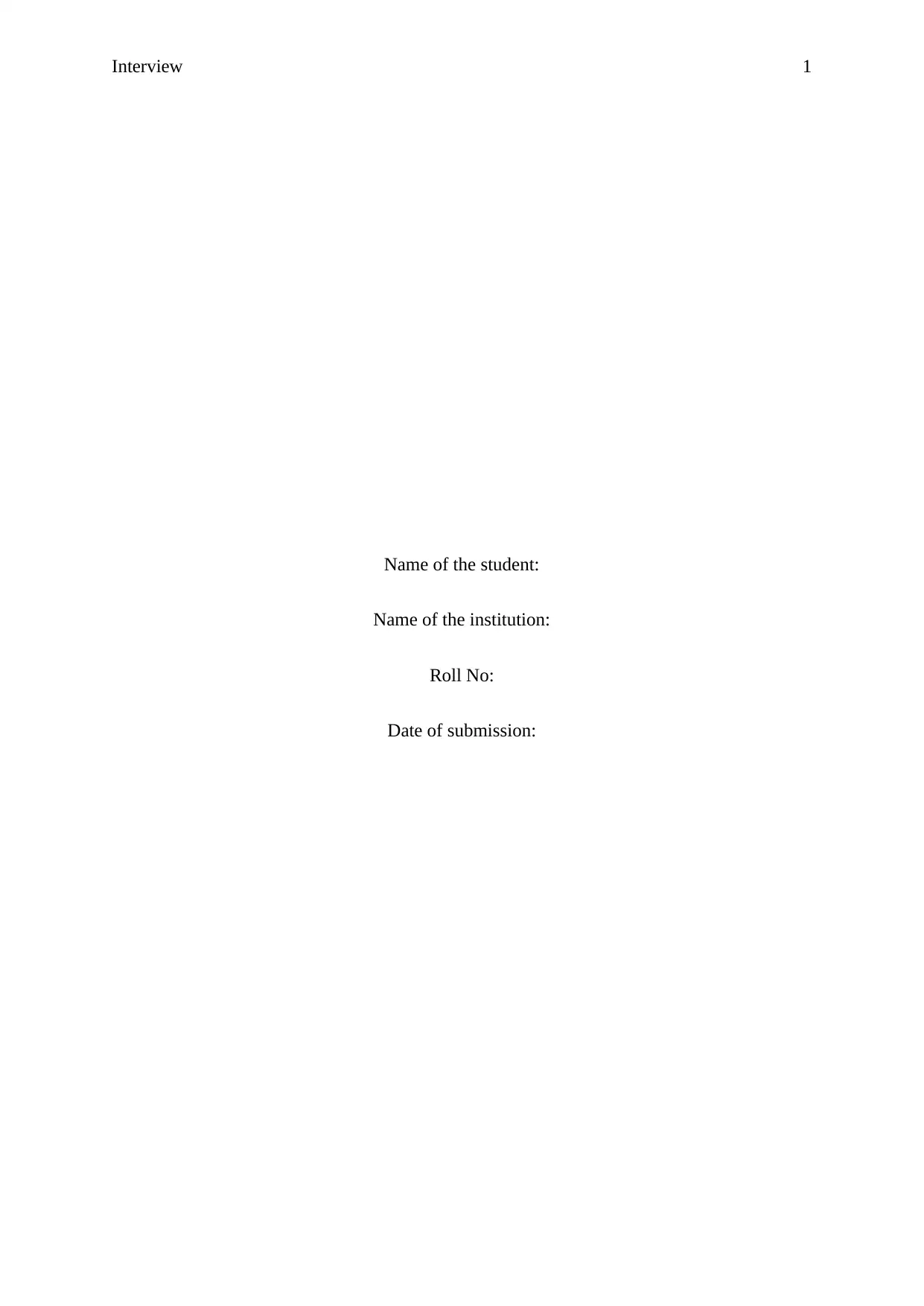
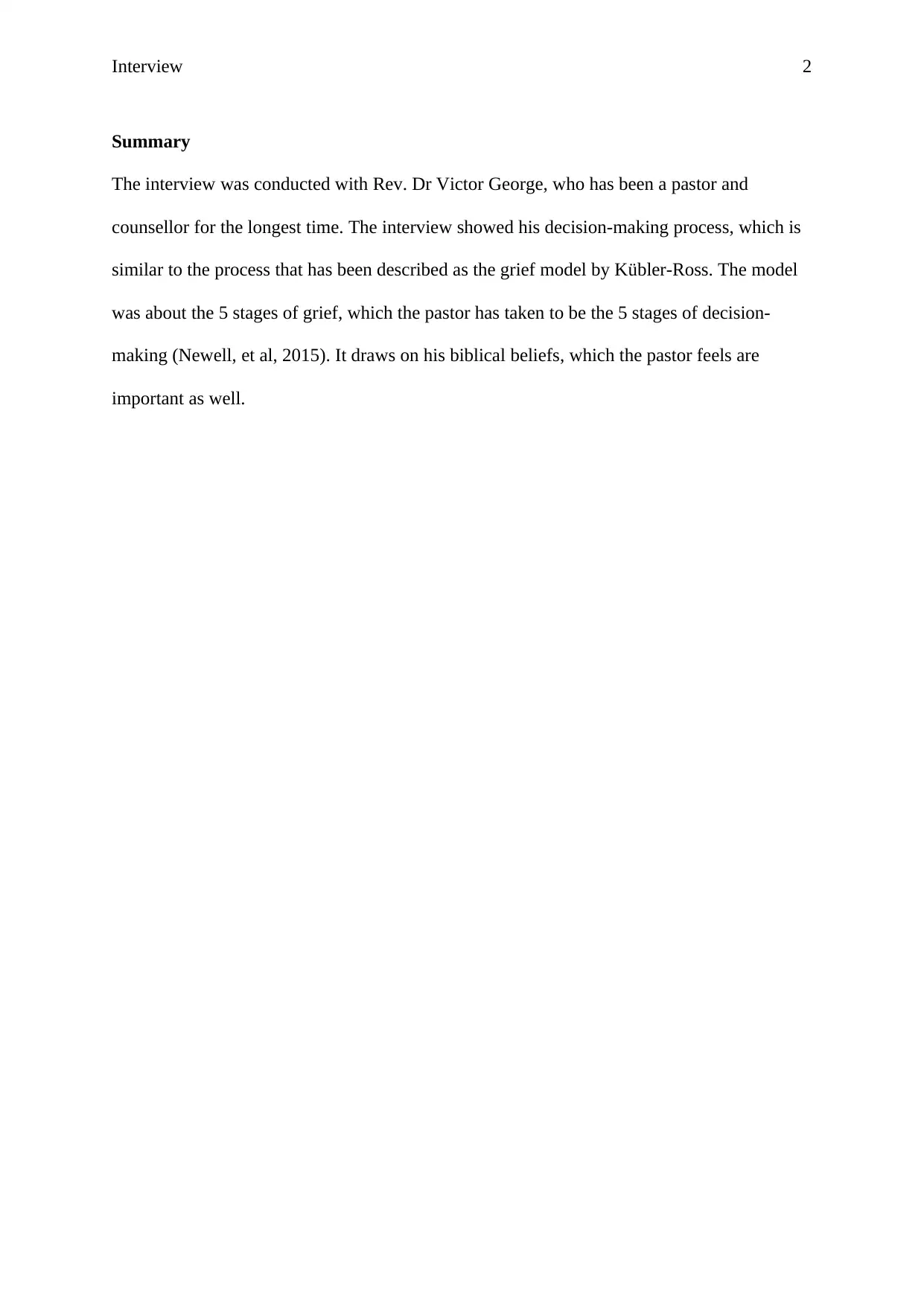
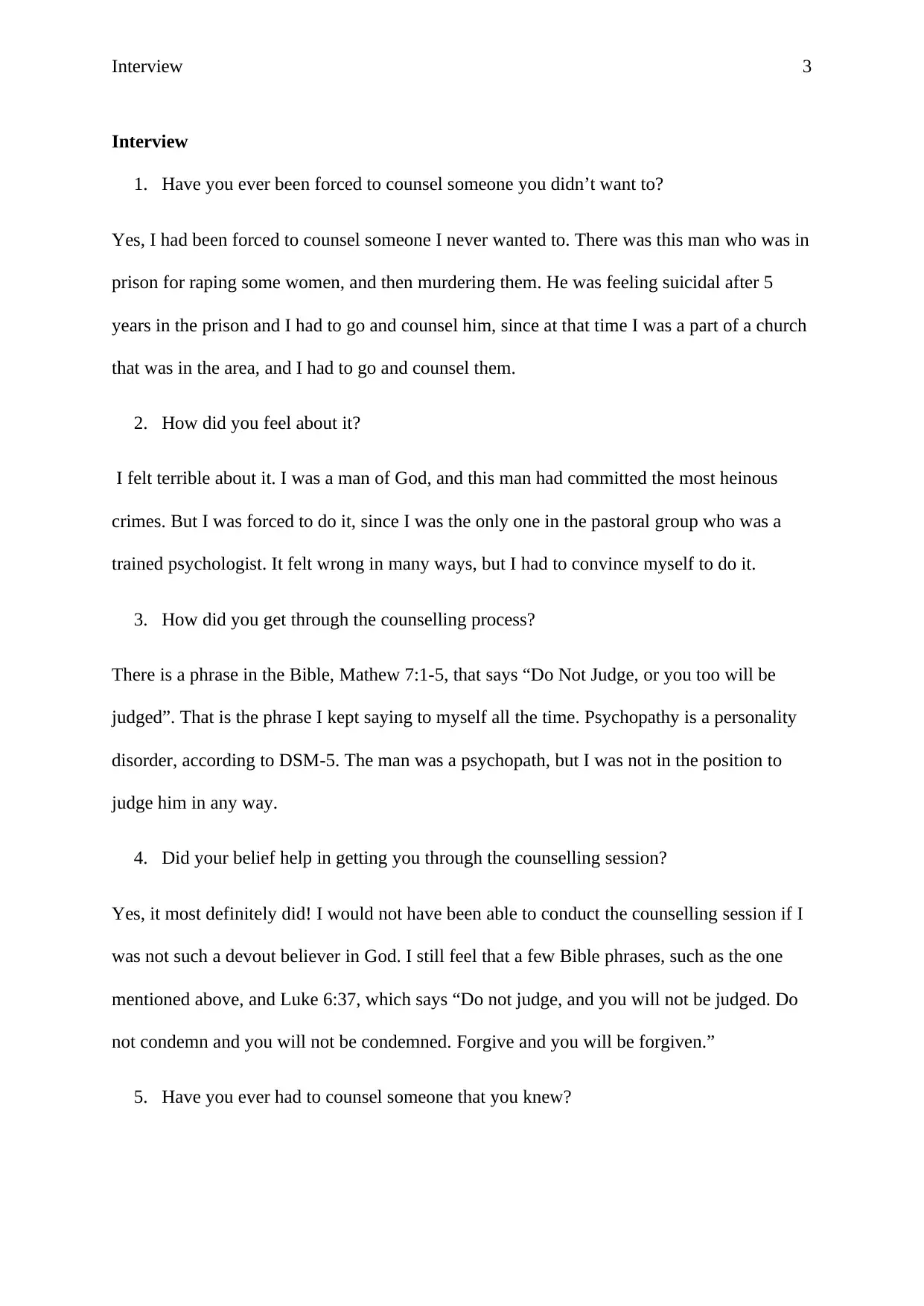

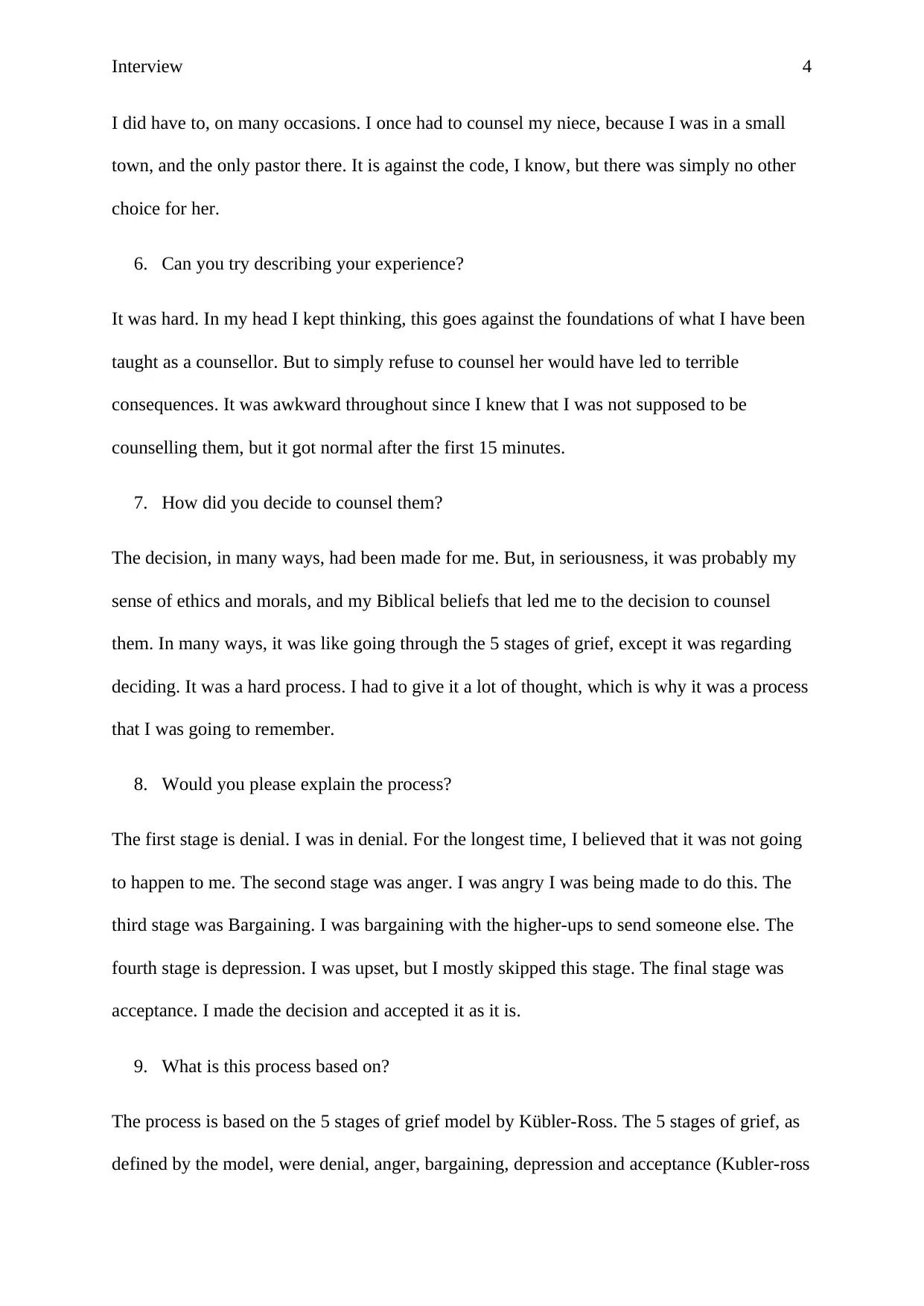
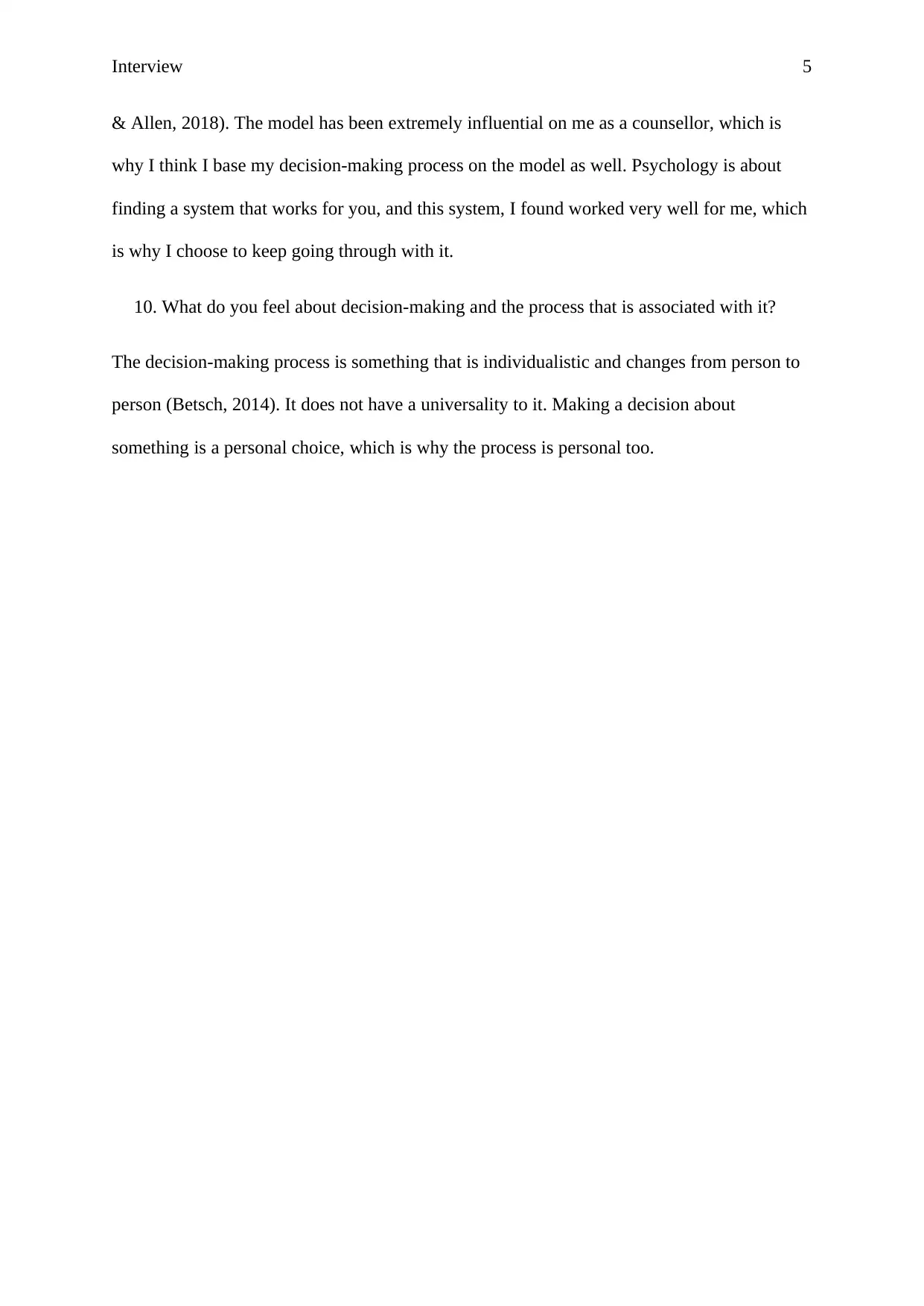
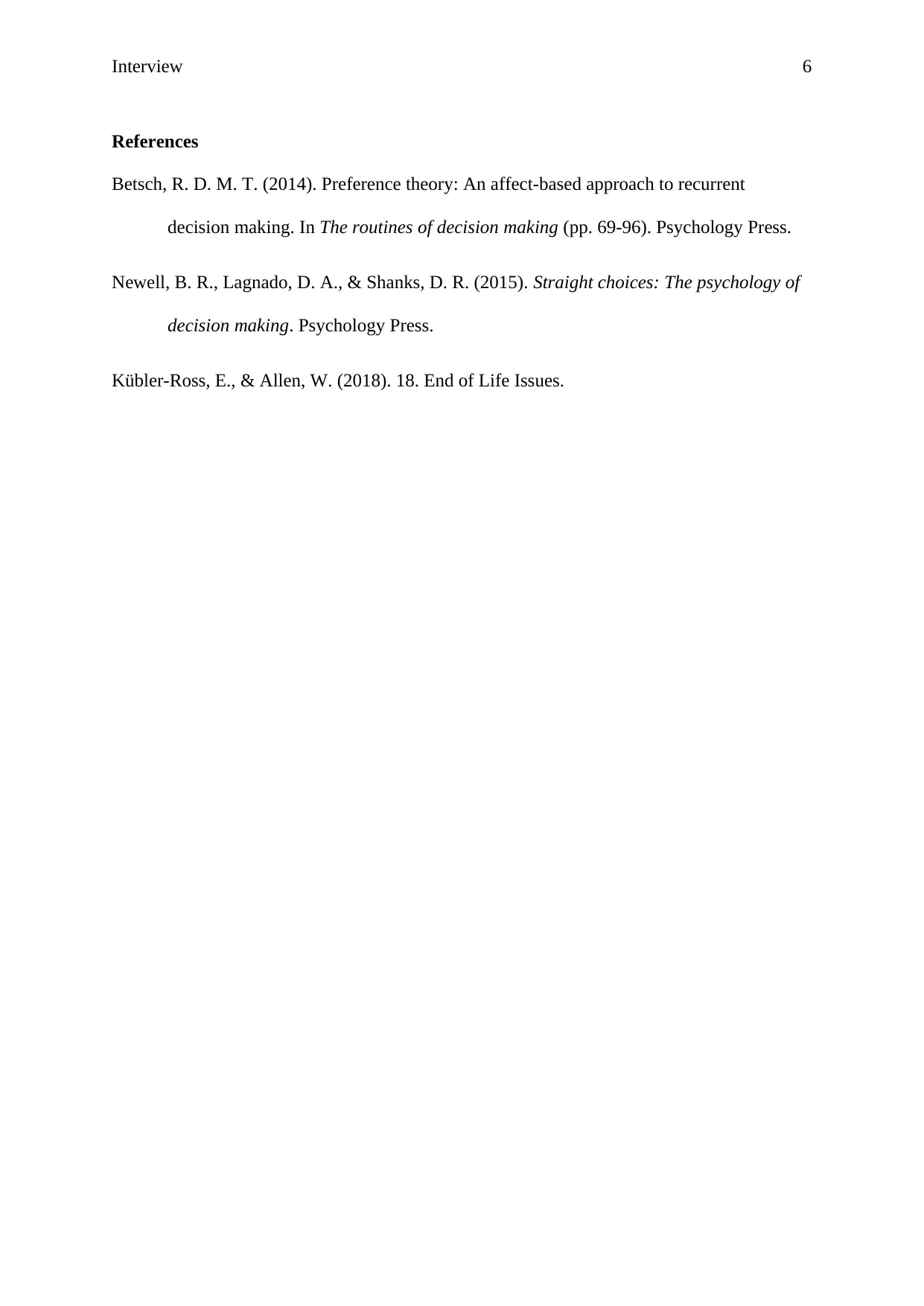



![[object Object]](/_next/static/media/star-bottom.7253800d.svg)